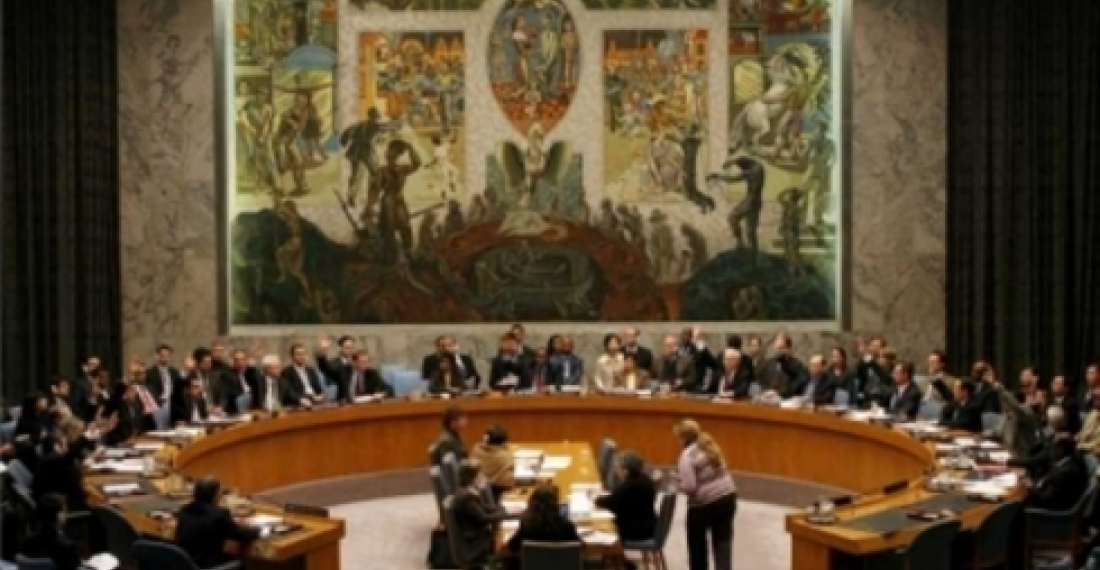In this op-ed for commonspace.eu Dennis Sammut discusses why support for Turkey at the UN General Assembly collapsed, and the options ahead for Turkish diplomacy.
Turkey has lost its bid to win a seat on the United Nations Security Council. Voting to choose five non-permanent members of the Council for the next two years took place on Thursday at the UN General Assembly in New York under a complex system that saw Turkey fighting it out with Spain and New Zealand for one of the two seats allocated to the group called "Western European and others". All 193 member states get to vote. New Zealand got elected outright in the first round. After an inconclusive second round, Spain got elected in the third round with 132 votes against 60 for Turkey. It is this huge gap which will worry Turkish diplomacy most. Since Turkish diplomats were confidant of success in their bid, something clearly went wrong.
Turkey had announced its intention to stand for the Security Council several years ago and had systematically lobbied for this. The Turkish candidature was endorsed by the fifty-seven members of the Organisation of Islamic Co-operation (OIC) at the 39th session of the Council of Ministers held in Djibouti in November 2012. Turkey lobbied extensively with African countries, where Turkish diplomacy has been very active in recent years. It always assumed it had the support of the Turkic republics of Central Asia. The result of the vote therefore was not only a disappointment for Turkey, but a surprise to other diplomatic observers too.
It is clear that the OIC endorsement was all but meaningless. Recent years have seen a rift between Turkey and Egypt, with Saudi Arabia and other GCC countries (except Qatar) backing the Egyptians. Turkey's influence within the OIC, which peaked about five years ago, has long since waned.
Turkey's relations with its immediate neighbours also remain problematic: Turkey has backed regime change in Syria, alienating that segment of international opinion that still supports the Bashar al Assad government (including Iran, and to a certain extent, Russia). Its relations with Israel remain strained. Problems with Cyprus, with Armenia and with the Kurds remain unresolved.
For Turkey it was unfortunate that it was New Zealand that got elected outright, and not Spain. In a head to head vote, Spain could count from the outset on the support of the 28 member states of the European Union, and of most of the Latin American countries. Given the collapse of the OIC support there was no similar core group backing Turkey.
Indeed reports from New York indicate that some OIC countries, such as Egypt and Saudi Arabia lobbied intensively, especially amongst African countries, to block the Turkish bid. It is here where most likely support for Turkey evaporated fastest.
A non-permanent seat on the United Nations Security Council is largely a prestige position and brings little tangible benefits. But as Turkey seeks to upgrade itself from a regional to a global power the rebuff will be a considerable disappointment. It must draw lessons from it.
The first problem is structural. Turkish diplomacy has come a long way in the last decade. The arrogance that characterised Turkish diplomats in the 1980s and 1990s has long since made way to a more professional and more able younger group of cadres, but some streaks of the old practices remain. Turkey's new Foreign Minister must complete the process of modernisation that his predecessor had started.
More importantly however is Turkish foreign policy strategy. It is all well and good for a country to want to pursue an independent foreign policy, but in the end diplomacy is about building friendships and alliances, and Turkey may have alienated old friends without replacing them with new ones. Turkey needs to address the many unresolved issues with its neighbours.
By coincidence, the UN vote took place on the same day that Turkey launched a charm offensive aimed at re-connecting with public opinion in Europe. This is long overdue. The vote at the UN has exposed the limitations of the alternatives to Europe that Turkish diplomacy has been experimenting with in recent years. It should be a wake-up call, and should lead to Turkey re-discovering its European vocation.
Dennis Sammut is a researcher and analyst based at Oxford University. (dennis.sammut@spc.ox.ac.uk)






